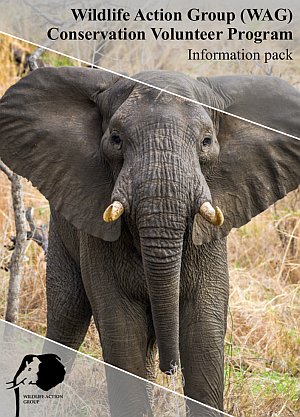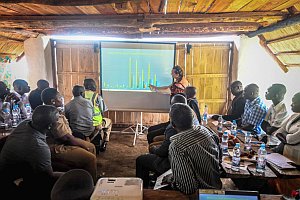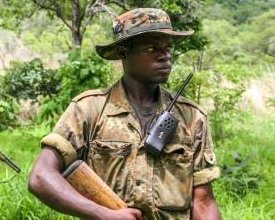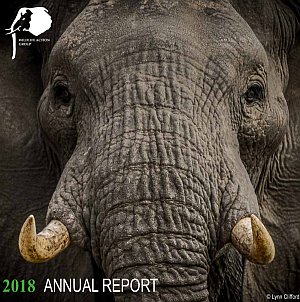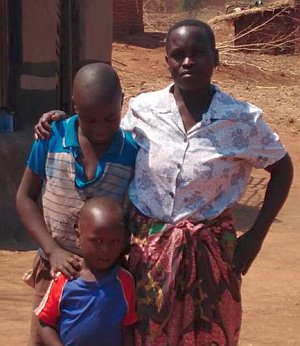September 2019
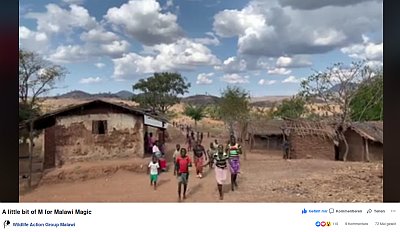 |
|
-> A little bit of M for Malawi Magic (WAG MALAWI
FACEBOOK Video Channel)
|
Somewhere between April and July 2019 the stars aligned,
and over 900 people living close to Thuma Forest Reserve in
one of the poorest regions of Malawi saw the benefit of
living close to the forest.
Wildlife Action Group (WAG) is a Malawian conservation
NGO, a non-profit responsible for the protection and
rehabilitation of two forest reserves, home to important
elephant populations, in Central Malawi. The environment is
directly linked to the people's health, and one of our
top priorities besides habitat and wildlife protection is to
work closely with communities, developing alternative income
activities and improving the lives of those living closest to
the protected areas.
Through close consultation with Traditional Authorities we
have been able to learn about some of the most pressing needs
in villages close to the reserves. Access to clean water and
improved food production were top of that list. Women were
spending as much as 6-8 hours every day fetching water, often
setting off during the night, and drawing water from the same
places as livestock and wild animals diseases such as cholera
are a huge concern.
Enter Marcus Westberg, a professional conservation and
humanitarian photographer from Sweden who has been visiting
Malawi for years and has many deep, close connections here.
Marcus visited Thuma Forest in April to help us take photos
of our rangers, and this is where we discussed the need to
find funds for boreholes.
And this is when the magic started.
Marcus has links with a company called Nu Skin
Enterprises, whose non-profit Force For Good Foundation (FFG)
has been supporting projects in Malawi for over a decade.
Marcus has coordinated FFG fundraising efforts amongst a
large group of their European distributors (“One Team
Global”) for several years, largely for boreholes, and
although he made no promises he understood our plight and
said he would ask if WAG community need could be included as
a beneficiary of this year’s fundraising efforts.
 |
|
Force For Good Foundation (FFG)
|
By the end of May, the funds had been raised for projects
in Malawi through the incredible kindness and generosity of
Nu Skin distributors from all over Europe, but it was still
unclear whether WAG communities would receive the necessary
funding for three boreholes. However, when Ben Chingwalu,
Director of Nu Skin’s agricultural outreach program, SAFI
Extension - SAFI stands for School of Agriculture for Family
Independence - which is a major beneficiary of FFG funds was
consulted, he along with Goodwell Banda, Director of the main
SAFI campus, and with the support of Stephen Hunsaker and
Veronica Jensen from Nu Skin, agreed to use some of the
funding raised by the European distributors to construct the
three boreholes, but to also include those communities in the
SAFI Extension program - which would also train and set up
nearly 200 families in gardening, crop production and animal
husbandry over the course of a year! Not only did Ben
recognize the need of these communities, he was also very
excited to, for the first time, combine these humanitarian
efforts with a conservation project, involving FFG in the
protection of Malawi’s natural habitats and wildlife.
 |
|
SAFI - School of Agriculture for Family
|
The dream was about to become a reality.
In June, Ben and his team came to make field visits
together with Stephen, visiting from the US.
By July, the boreholes were already drilled and
agricultural training had begun. Normally the boreholes are
only constructed at the end of the training as a reward if
the communities fully commit, but WAG and Marcus requested
that an exception be made, and recognizing that the
agricultural training would be impossible without access to
water Ben very kindly agreed to put them in right away, even
before the money had been received.
Through SAFI Extension, the families:
- learn to create fertilizer and compost manure, leading
to increased crop yields;
- are provided with the material to build their own
vegetable gardens and taught methods of rotating the crops
to ensure continuous production, meaning that they don’t
have to spend money on vegetables and can even sell the
surplus production;
- learn about drip irrigation, nutrition and sanitation
(hand washing devices), as well as building more
fuel-efficient stoves; and
- learn to raise rabbits and chickens, both as a source
of protein and to sell.
The whole thing is done with the understanding that the
families must “pay it forward” by sharing both knowledge and
supplies with their neighbors as they become more
successful.
The grand finale was when we received visits from some of
the actual donors, mainly from Sweden, led by Marcus and Ben,
including for the inauguration of one of the boreholes in
early August. There was dancing and singing by all, and much
emotion from both sides. The feeling of joy and pride was
unbelievable: one 60 year old woman, Mama Kadula, told us how
this was the first time in her entire life that she had
tasted clean water (!), and one of the chiefs told us that in
the one month since the installation of the borehole, the
diarrhea almost everyone had been suffering from was
virtually gone. Others told us how with amazement that
already within a few months they would no longer have to walk
15km in each direction to buy vegetables at the market,
something they had never believed would be possible, and that
the money saved would be used to pay for school fees and
uniforms for their children.
Although Marcus had been asked to cut the ribbon of the
borehole as a thank you for making all this possible, he
unexpectedly passed this honor to Mama Kadula and the Group
Village Headman, which was much appreciated by the hundreds
of people who were there to partake in the
celebrations.
We at Wildlife Acton Group cannot put into words how
grateful we are for these interventions in these extremely
poor areas. Not only has this improved the quality of many
people's lives - it is also having a deep, positive
impact on the relationship between these protected areas and
the surrounding communities, strengthening the protection of
wildlife which includes some of the last remaining escarpment
elephants in Africa. We hope that this will be the first of
other such innovative interventions around Thuma Forest
Reserve.
A huge, huge thank you to everyone who supported these
efforts: to Nu Skin, for all the important work you do
through FFG in Malawi and for entering into this
collaboration with WAG; to OTG and all the donors in Europe
without whose generosity none of this would have been
possible; to the entire team at SAFI Extension, but
especially to Ben Chingwalu, whose clear vision and
commitment will forever change these communities; and to
Marcus Westberg, the man with the heart of gold whose
goodness who made all this magic happen.
Zikomo Kambiri (thank you so much) on behalf of the people
and elephants of Thuma Forest - please enjoy this video and
photos from the inauguration, and feel free to share this
post with anyone who supported these wonderful
efforts.



